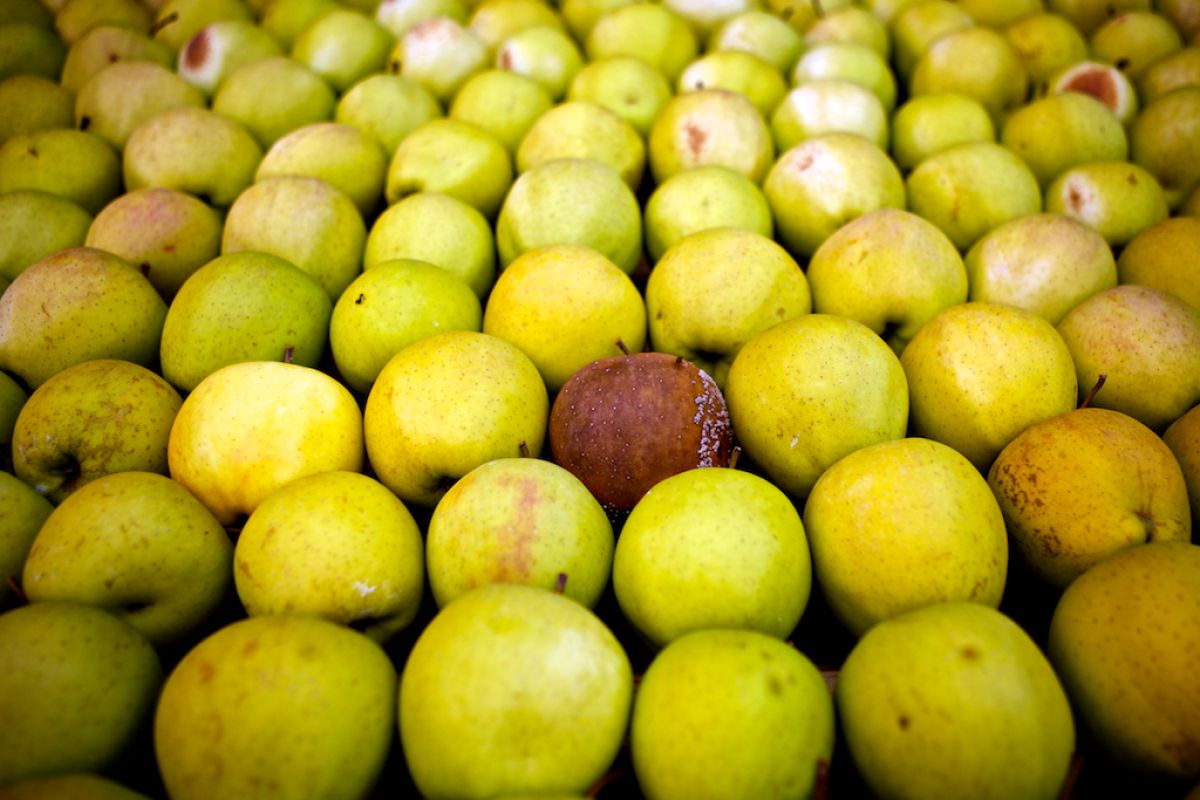Why one rotten apple can spoil the barrel, in this Moment of Science.
If you buy green, underripe lemons or bananas, you can make them ripen faster by keeping them in paper bags.
Chinese growers used to ripen fruit by keeping it in a room with burning incense.
In the West, farmers used to "cure" fruit with kerosene stoves.
What's behind all these processes is a gas called ethylene, Ethylene comes form burning fuels like kerosene, and it's made naturally by all parts of a plant at one time or another. Ethylene stimulates germination of the seed, flowering, ripening of fruit, dropping of fruit, dropping of leaves. The ethylene produced by ripe fruit will stimulate another nearby fruit to ripen. So there's a chemical basis for the proverb about one rotten apple spoiling the whole barrel.
Ethylene is used in commercial agriculture, to stimulate the ripening of bananas, tomatoes, and citrus fruits and to help give them the colors people expect; ethylene even makes roses drop their leaves.
Fruit shippers usually want to stop the ripening process, so they store fruit in rooms that have ethylene chemically removed from the air.
Incidentally, farmers at one time thought that it was the heat from a kerosene stove that was ripening their fruit. But those who tried modern non-kerosene heaters didn't get the results they wanted. It wasn't the heat that was "curing" the fruit -- it was the ethylene.










